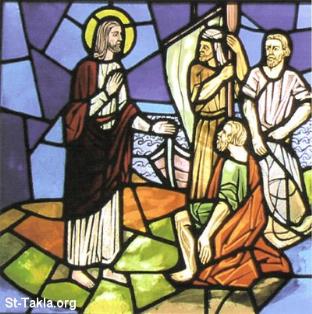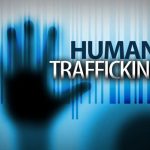NCEA Achievement Standards:
Religious Studies 1.2
 This Achievement Standard comes under the Domain of: Understanding Religion; Describe a significant aspect within the development of a religious tradition.
This Achievement Standard comes under the Domain of: Understanding Religion; Describe a significant aspect within the development of a religious tradition.
It covers the history of the early church up to the Reformation.
Resources: Religious Studies 1.2

Religious Studies 1.3
This Achievement Standard comes under the Domain of Describe the application of the key ethical principle(s) of a religious tradition to an issue.
It focusses on the issue of Human Trafficking.
The Lesson Plan can be downloaded here: Lesson plan
Please contact the Resource Office if you would like the full set of resources.
Religious Studies 2.1

This Achievement Standard comes under the Domain Name of: Explain a significant theme in a sacred text within a religious tradition. It covers the significance of the biblical theme of redemption within Christianity.
Resources: Religious Studies 2.1
Religious Studies 2.2
This Achievement Standard comes under the Domain Name of: Explain the changes in an expression(s) of a religion’s tradition.
It explores the ways in which the beliefs and practices of Christianity changed in response to the Modern era.
Resources: Religious Studies 2.2
Religious Studies 2.3
This Achievement Standard comes under the Domain of: Explain how a contemporary social action derives from the the ethical principles of a religion’s tradition.
It covers the topic of service, explores the biblical incentive to serve others and requires the planning, carrying out and reflection on a service project.
Resources: Religious Studies 2.3
Religious Studies 2.4
 This Achievement Standard comes under the Domain of: Explain the key beliefs within two religious traditions in relation to a significant religious question.
This Achievement Standard comes under the Domain of: Explain the key beliefs within two religious traditions in relation to a significant religious question.
It explores what religion is and differing perspectives on it. It also covers the major world religions of Hinduism, Buddhism, Judaism, Christianity and Islam.
Resources: Religious Studies 2.4
With the exception of 1.3 on Human Trafficking, these Achievement Standards have been written by Dr Jennifer Macleod of Columba College, Dunedin. Please contact Jennifer for information about the marking schedules for these Standards: jmacleod@columbacollege.school.nz
Presbyterian Shapers
The Presbyterian Church of Aotearoa New Zealand has many stories to tell of ordinary, everyday people who, in being true to their following of Jesus Christ, have done extraordinary things within their local (and sometimes global) communities.
Their legacy has endured well beyond their lifetime, helping to shape and inform our society and its values today along with offering inspiration for contemporary Christian faith.
The Presbyterian Shapers’ series aims to tell the stories of these remarkable people and the difference they have made. It also aims to enable students to reflect on issues in today’s society in the light of the values, practices and priorities demonstrated by faith-filled Presbyterian Shapers of the past.
With thanks to Rev Yvonne Smith for developing this material.
 |
Rutherford WaddellThe story of Rev Dr Rutherford Waddell tells of his courageous stand against sweatshop practices in the late 1800’s in Dunedin and his involvement in helping to establish just workplace practices and law. Sadly, these issues are just as pressing in our world today as they were back then. Resources: Rutherford Waddell
|
 |
David and Sarah DingwallBrother and sister David and Sarah Dingwall practiced generosity by sharing their wealth with others. Their legacy continues to have an important impact in the lives of children and their families today. Resources: David and Sarah Dingwall
|
 |
Presbyterian Women making a differenceThree Presbyterian women, Margaret Neave, Kathryn McDaniel and Mo Morgan, whose courageous and committed Christian faith has made (and is making) a difference. Resources: Presbyterian Women Making a Difference |
Human Trafficking
ACRATH (Australian Catholic Religious Against Trafficking in Humans) have produced a teaching resource for secondary school teachers to assist in educating and raising consciousness about the issue of human trafficking. It is written for an Australian context but could easily be adapted for NZ schools.




